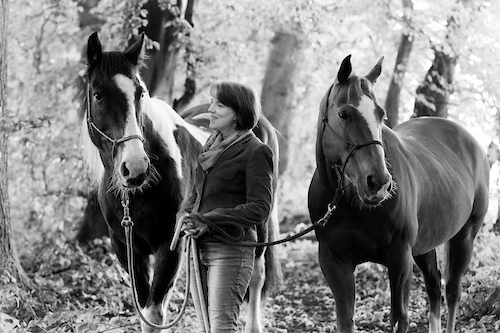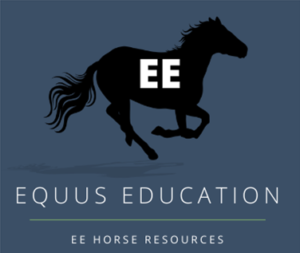Pam Billinge has recently taken the time to share about her books and the therapeutic work that she carries out with horses. Her answers to some questions from Equus Education are detailed below. Thanks Pam!
How much of your day/week is related to horses?
That depends very much on the day! Every day I can spend anything between two hours and four hours with the daily ‘care’ of the horses and land maintenance. Sometimes I might also spend the rest of the day working with the herd and one or more clients who come for therapy or coaching. Other days the work required to run my business is desk based: doing accounts, marketing, designing programmes and workshops or writing articles and books.
What is it exactly that you do?
I am a horse-led therapist and facilitator. This means that I offer clients – both private clients and from the corporate sector – personal and professional development experiences which have at their centre the relationship between horse and human. Sometimes what I do is called equine assisted learning, but I prefer to call it ‘horse-led’ because I feel it is me who assists the horses!
I am also an author, and have published two books The Spell of the Horse, and The Spirit of the Horse.

In this field of work, is it possible to be a full-time professional and earning a liveable income?
Yes it is. However it takes many years of training and building a network to be able to run a full-time profitable business.
What are the general steps taken to be employed in such a role?
I always recommend that practitioners follow two lines of study: a professional psychotherapy, counselling or coaching qualification and training PLUS a parallel education in horse behaviour and horse care. It is most likely that practitioners will be self-employed, so will need to know about running a business too.
Once the professional skills required in each separate discipline are acquired the two things can be put together. Practitioners may also wish to specialise in a client group – children and adolescents, families, business people, bereavement and trauma, for example.
Favourite horse memory?
My favourite horse memory has to be the six weeks I spent studying on a ranch in the mountains of Colorado. Riding every day, most of the day! What I learned about myself from my amazing lease horse changed my life completely and led to me doing the work that I do.

Future goals?
I want to continue writing books about horses and their healing, generous natures, so that they are better understood throughout the world.
Best thing about your sport/profession?
Undoubtedly spending so much time with horses and continuing my own journey of personal discovery at their side. I also love it that the horses are allowed to simply ‘be’ – without any pressure to perform or conform to our human world.

Leave a Reply